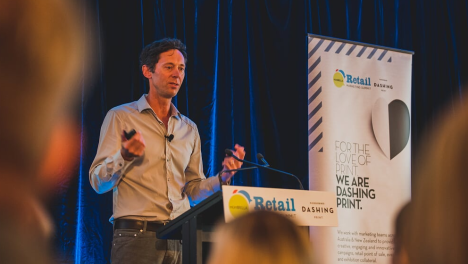Tesco Clubcard architect says companies should tell customers how much they sell their data for
Companies are being urged not just to collect data from customers through loyalty schemes, but share it with them and even tell them how much they are selling it for, by one of the world’s leading experts in customer loyalty.
Grant Harrison, CEO of The Future Customer, told the Mumbrella Retail Marketing Summit in Sydney this morning that business needed to break away from the idea that the data it collected should be hidden from customers.
“Coming to a new area this information is opening up a passion area for people,” said Harrison. “The way the use of data has been changing is in permission.”


